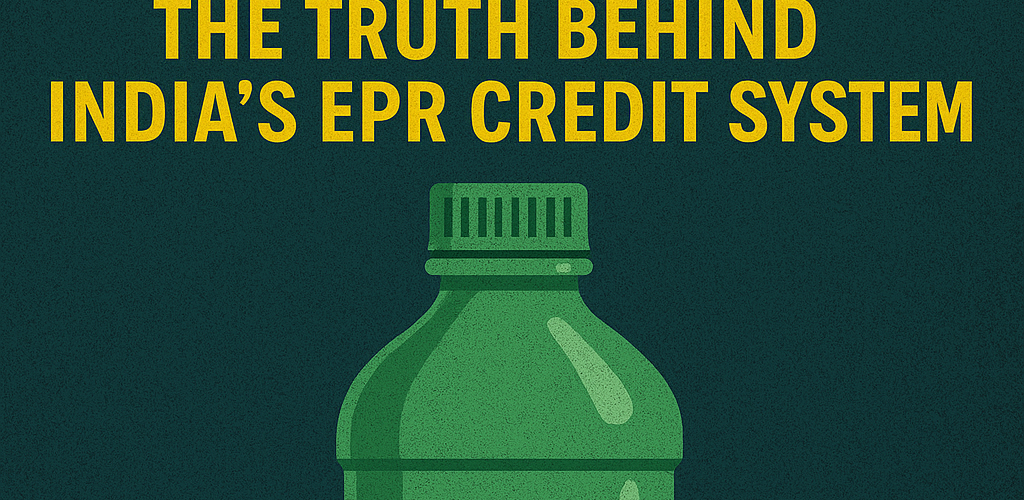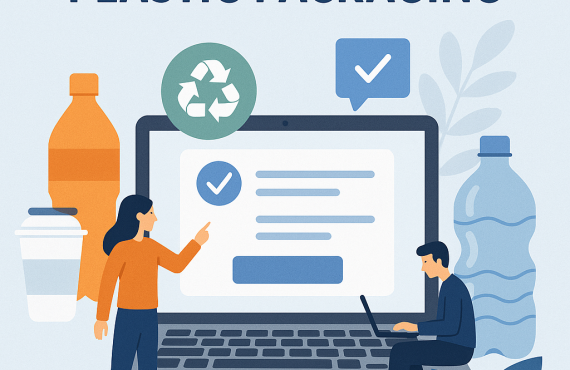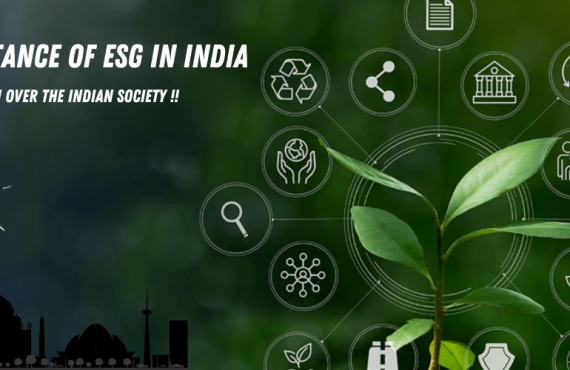♻️ Recycled Lies? The Truth Behind India’s EPR Credit System
Over the past few years, Extended Producer Responsibility (EPR) has emerged as a critical policy instrument in India’s strategy to tackle plastic waste management. Its intention is noble: shift the responsibility of managing plastic waste from the public sector to those who produce it—producers, importers, and brand owners (PIBOs).
However, despite a well-defined framework laid out by the Central Pollution Control Board (CPCB), India’s EPR credit system is plagued by loopholes, manipulation, and in some cases, outright fraud. While EPR was designed to foster accountability and circularity, its current implementation has left many questioning its credibility.
🚧 Understanding the EPR Credit Mechanism
According to the Plastic Waste Management Rules (PWM) 2016, amended in 2022, PIBOs must collect and recycle plastic waste equivalent to their plastic footprint. They can do this by:
- Engaging in direct recycling operations
- Collaborating with registered Producer Responsibility Organizations (PROs)
- Purchasing EPR credits from plastic waste processors (PWPs)
These credits act as proof of recycling and are meant to drive accountability in the supply chain. But on the ground, things are not so straightforward. A disconnect between policy intent and on-ground practices has led to a fragmented and sometimes opaque compliance landscape.
⚠️ Cracks in the System: EPR Loopholes and Frauds
A 2023 investigation by Down To Earth revealed that several recyclers were issuing EPR certificates without actually recycling any plastic. This practice allowed companies to meet their compliance targets on paper while continuing unsustainable operations in practice.
Common fraudulent practices include:
- Fake EPR certificates issued for unprocessed waste
- Duplicate credit issuance using the same waste batch
- Ghost recyclers that exist only in documentation
- Poor auditing and tracking of waste processing activities
Worse still, unorganized informal sector actors are sometimes co-opted by unscrupulous agents to show inflated waste collection figures, further eroding trust in the system. This has led to a booming underground trade in EPR credits, especially in states with high industrial output but limited regulatory enforcement.
________________________________________
📌 Case Snapshot: Maharashtra’s PRO Crackdown (2022)
In late 2022, the Maharashtra Pollution Control Board (MPCB) issued notices to multiple PROs for failing to provide evidence of actual plastic collection and recycling. Investigations uncovered:
- Improper documentation
- Falsified recycling data
- Discrepancies in waste collection volumes
As a result, several registrations were suspended, and recycling facilities came under scrutiny. This case exposed the fragility of the EPR verification process and the urgent need for transparency in recycling compliance. It also brought to light how some major FMCG brands had unknowingly purchased fraudulent credits, demonstrating that even well-meaning businesses can be misled by flawed systems.
🧩 Is the EPR System Flawed by Design?
The CPCB EPR guidelines depend heavily on manual verification and self-declared documentation. Unlike financial systems that use blockchain or secure registries, EPR credit verification lacks digitization and traceability. This makes the system vulnerable to forgery and misuse.
Many stakeholders are now questioning:
- Is India’s EPR credit system flawed?
- How can we ensure accountability in waste recycling?
- Why is real-time tracking of plastic waste still missing?
Without tech-enabled checks and balances, the system risks becoming a compliance checkbox exercise rather than an instrument for real environmental change.
🔍 Weak Oversight and the Role of CPCB
The CPCB and State Pollution Control Boards (SPCBs) are tasked with overseeing compliance. However, the scale of plastic production in India vastly outpaces the available regulatory workforce. The EPR recyclers audit process is fragmented, with little coordination or standardized inspection protocols.
In 2023, CPCB admitted that over 70% of PROs had not submitted audited recycling data—a shocking statistic that speaks volumes about regulatory gaps. Furthermore, field-level inspections remain rare, and most reviews are limited to desk-based assessments, reducing their ability to detect fraud early.
✅ The Way Forward: Cleaning the Credit Chain
To restore integrity in the EPR system and achieve genuine sustainable waste management, a series of reforms are essential:
- Centralized EPR credit registry linked with GPS-enabled waste tracking
- Blockchain-based digital verification (similar to GST e-invoicing)
- Independent third-party audit firms, empaneled and rotated annually
- A performance-based rating system for recyclers and PROs
- Mandatory CPCB guideline training for PIBOs, recyclers, and PROs
Additionally, a national dashboard on EPR performance, updated quarterly, would promote transparency and allow civil society and researchers to track progress in real-time.
💡 Final Thoughts: Beyond Tokenism
EPR was introduced not just to balance numbers, but to bring real-world impact in reducing India’s plastic burden. However, the truth behind India’s EPR credit system is that, without urgent reform, it’s dangerously close to becoming a bureaucratic formality.
As citizens, professionals, and sustainability advocates, we must demand better. Green compliance must mean more than certificates—it must translate to less plastic in landfills, rivers, and oceans.
India’s path to a circular economy will depend not just on rules, but on results.
It’s time we moved from paper accountability to environmental action.





